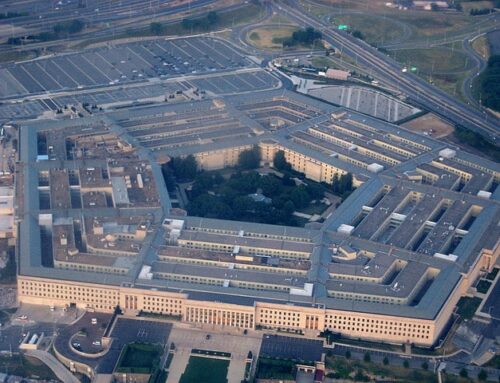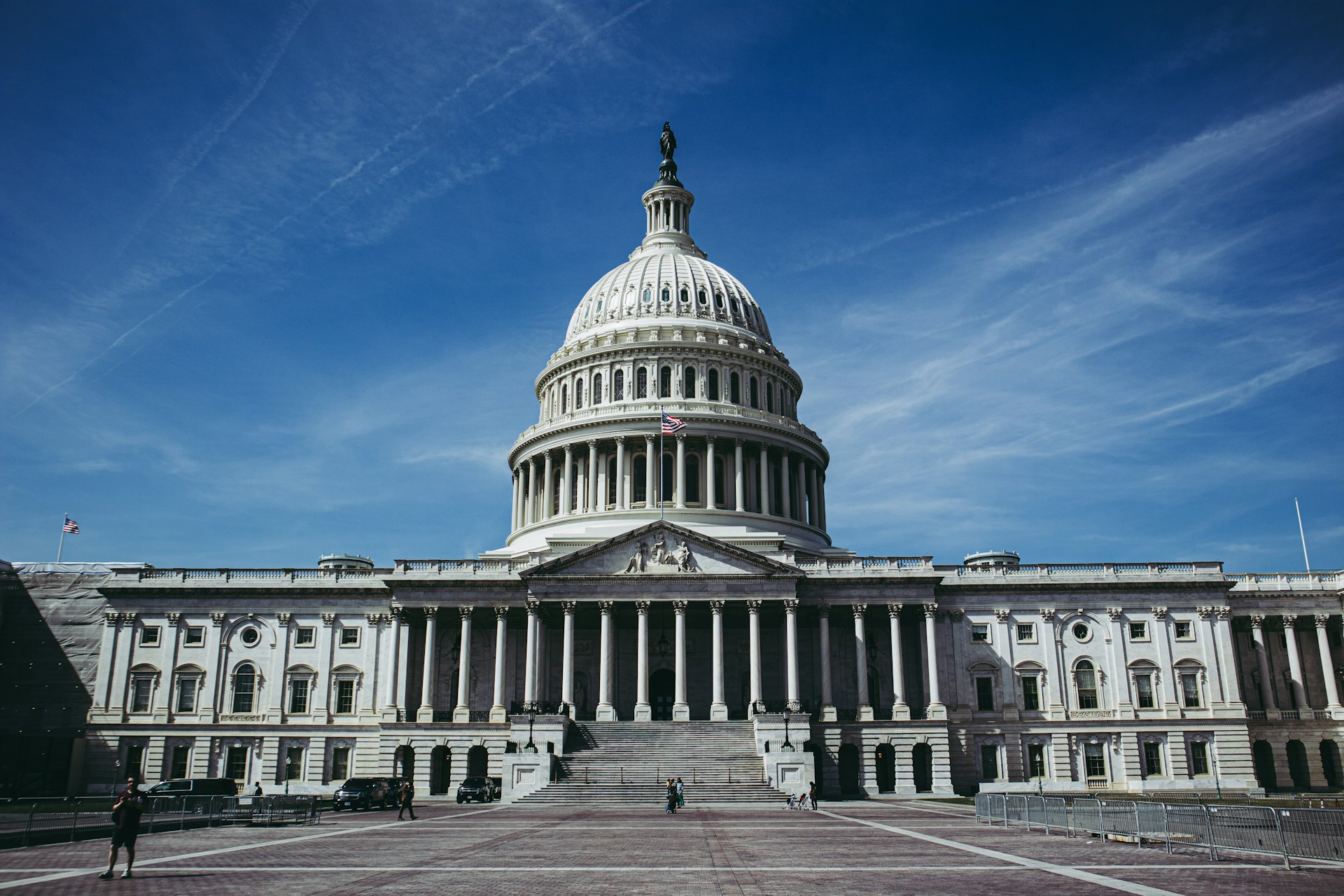TCS joined several organizations in a joint letter to President-Elect Biden and Vice President-Elect Harris urging the transition to scrutinize the Pentagon budget. You can read it below in two ways — read or download the PDF, or scroll further down for the full text of the letter:
Dear President-elect Biden and Vice President-elect Harris:
On behalf of the undersigned organizations, representing millions of taxpayers around the country, we wish to congratulate you on your election as the 46th President and 49th Vice President of the United States. Though we may not agree on all the important tax, spending, or regulatory matters that will confront our nation in the years to come, we also hope to find possible areas of compromise and cooperation in the work that lies ahead.
One such area is Pentagon spending. Though conventional wisdom holds that conservatives support increasing defense budgets from year to year, our organizations have long track records of closely scrutinizing the massive budgets and bureaucracies at the Department of Defense (DoD). We regularly press Members of Congress in both parties, DoD, and the White House on Pentagon budget reform efforts. As you continue the transition of power and examine the state of various federal agencies, we ask that you pay special attention to and offer extra scrutiny of the Pentagon as well as its nearly $700-billion budget.
To that end, we would commend to your attention and that of your DoD Agency Review Team the following initiatives and efforts:
- Ensure that DoD and the Office of Management and Budget (OMB) expeditiously revise its criteria for the Overseas Contingency Operations (OCO) account. The OCO account has long been called a slush fund by policymakers across the ideological spectrum. Part of the problem is that when OMB and DoD determine what DoD will include in its annual budget request for OCO, they are operating off criteria that are now more than a decade old.[1] Given OMB and DoD last developed criteria in 2010, we believe that the Biden-Harris Administration has the opportunity to provide a fresh update for OCO criteria in 2021 that better reflects the military’s actual overseas contingency needs. As you develop criteria, we urge you and your teams to consider significant fiscal guardrails, given the OCO account has run out of control in recent years and must be substantially curtailed.
- Require DoD to give OMB and Congress a plan for transitioning all base and enduring costs out of OCO budget requests. DoD pledged in fiscal year (FY) 2016 to create a plan for transitioning all enduring costs funded through OCO to the base budget over four years (FYs 2017 – 2020), but never submitted the plan because lawmakers included overly generous OCO targets in the Bipartisan Budget Act of 2015.[2] Sec. 1522 of the House’s National Defense Authorization Act (NDAA; H.R. 6395) would require the Secretary of Defense to report to Congress on how the Pentagon intends to shift OCO funding from the OCO account to the base budget.[3] Should Congress include Sec. 1522 in its conference version of the NDAA, we would urge the Biden-Harris Administration and DoD to complete a comprehensive transition plan for OCO funding and make it available to the public. Should Congress not include Sec. 1522 in the final NDAA, we would ask that your Administration commit to such a transition plan despite such inaction, thereby providing guidance for authorizers and appropriators in Congress as they consider an FY 2022 NDAA and FY 2022 appropriations bills.
- Ask DoD to provide Congress and the public with an update on implementing the 2015 cost saving recommendations of the Defense Business Board. In 2015, the Defense Business Board (DBB) identified $125 billion in five-year savings at the Pentagon that could be achieved mostly by cutting overhead costs. According to media reporting, though, DoD “killed” the plan and “imposed secrecy restrictions on the data making up the study, which ensured no one could replicate the findings.”[4] As the Biden-Harris Administration contends with record deficits and debt as well as the nation’s continuing need to combat the COVID-19 pandemic, the DBB recommendations may serve as low-hanging fruit that makes for a leaner and more efficient Pentagon in the long run. Sec. 1710L of the House’s NDAA (H.R. 6395) would require DoD to update Congress on efforts to implement cost-saving recommendations.[5] It also asks DoD to identify alternative options to achieve a target of $125 billion in five-year savings at the Pentagon. Should Congress include Sec. 1710L in its conference version of the NDAA, we would urge the Biden-Harris Administration and DoD to make the progress report and alternative savings recommendations publicly available. Should Congress not include Sec. 1710L in the final NDAA, we would ask that your Administration commit on its own to providing a progress report on the 2015 DBB recommendations, especially given the controversy surrounding DoD’s efforts to bury the original report.
- Urge Congress to keep the Chief Management Officer (CMO) position at the Pentagon. The CMO position at DoD, recommended by GAO in 2006 and established in 2010, has helped prior Administrations identify billions of dollars in wasteful spending at the Pentagon. Unfortunately, Members of Congress in both chambers are looking to eliminate the position as part of the FY 2021 NDAA — and the House version of the legislation would do so in just 30 days.[6] GAO recently warned that eliminating the position could be detrimental to DoD’s spending and business reform efforts.[7] The Biden-Harris Administration will need allies in the Pentagon for any spending and business reform efforts, and could make a major difference in this process by telling Congress that it wishes to keep the CMO position in place for FY 2021 and beyond.
- Commit to making DoD’s legislative proposals publicly available. When DoD makes certain requests of Congress that do not contain classified or otherwise sensitive information, the public should know about these interactions between the two branches. Though DoD has made its legislative requests public in recent years, it only published its FY 2021 requests after a report from the Federation of American Scientists pointed out that DoD was not publishing its FY 2021 requests online.[8] Sec. 1006 of the House version of the NDAA (H.R. 6395) would require public access to DoD legislative requests,[9] but we believe the Biden-Harris Administration can get a jump start on these efforts by asking OMB to issue guidance that requires all DoD legislative requests to be made publicly available on a single, centralized website.
Many of the undersigned organizations have also developed specific recommendations for weapons systems, personnel, logistics, and other areas of the military that could also be of some assistance to you in your deliberations. We would welcome the opportunity to further discuss such recommendations with you.
We appreciate the Biden-Harris Administration’s commitment to working across the political aisle and the ideological spectrum, and we hope to work with you further on spending and budget reform efforts. It is critical that the Pentagon, the nation’s largest bureaucracy, consistently deliver efficient results for taxpayers. We believe that DoD is currently falling short in a number of ways, and we believe the reforms above could put the department on a better path forward. Thank you for your consideration of our requests.
Sincerely,
National Taxpayers Union
Citizens Against Government Waste
FreedomWorks
R Street Institute
Taxpayers for Common Sense
Taxpayers Protection Alliance
CC: Dr. Kathleen Hicks, Team Lead, Department of Defense Agency Review Team
Members of the Biden-Harris Department of Defense Agency Review Team
The Honorable Adam Smith, Chairman of House Armed Services Committee (HASC)
The Honorable Mac Thornberry, Ranking Member of HASC
The Honorable James Inhofe, Chairman of Senate Armed Services Committee (SASC)
The Honorable Jack Reed, Ranking Member of SASC
[1] Government Accountability Office (GAO). (January 2017). “OVERSEAS CONTINGENCY OPERATIONS: OMB and DOD Should Revise the Criteria for Determining Eligible Costs and Identify the Costs Likely to Endure Long Term.” GAO-17-68. Retrieved from: https://www.gao.gov/assets/690/682158.pdf
[2] Ibid.
[3] Congress.gov. “H.R. 6395.” (Page 1577.) Retrieved from: https://www.congress.gov/116/bills/hr6395/BILLS-116hr6395pcs.pdf#page=1577
[4] Whitlock, Craig, and Woodward, Bob. “Pentagon buries evidence of $125 billion in bureaucratic waste.” The Washington Post, December 5, 2016. Retrieved from: https://www.washingtonpost.com/investigations/pentagon-buries-evidence-of-125-billion-in-bureaucratic-waste/2016/12/05/e0668c76-9af6-11e6-a0ed-ab0774c1eaa5_story.html
[5] Congress.gov. “H.R. 6395.” (Page 1798.) Retrieved from: https://www.congress.gov/116/bills/hr6395/BILLS-116hr6395pcs.pdf#page=1798
[6] Congress.gov. “S. 4049.” (Page 576.) Retrieved from: https://www.congress.gov/116/bills/s4049/BILLS-116s4049es.pdf#page=576; Congress.gov. “H.R. 6395.” (Page 916.) Retrieved from: https://www.congress.gov/116/bills/hr6395/BILLS-116hr6395pcs.pdf#page=916
[7] GAO. (November 2020). “DEFENSE REFORM: DOD Has Made Progress, but Needs to Further Refine and Formalize Its Reform Efforts.” GAO-21-74. Retrieved from: https://www.gao.gov/assets/720/710527.pdf#page=24
[8] Aftergood, Steven. “Pentagon Asks to Keep Future Spending Secret.” Federation of American Scientists, March 30, 2020. Retrieved from: https://fas.org/blogs/secrecy/2020/03/ndaa-fydp/ (Accessed November 11, 2020.)
[9] Congress.gov. “H.R. 6395.” (Page 966.) Retrieved from: https://www.congress.gov/116/bills/hr6395/BILLS-116hr6395pcs.pdf#page=966











Get Social